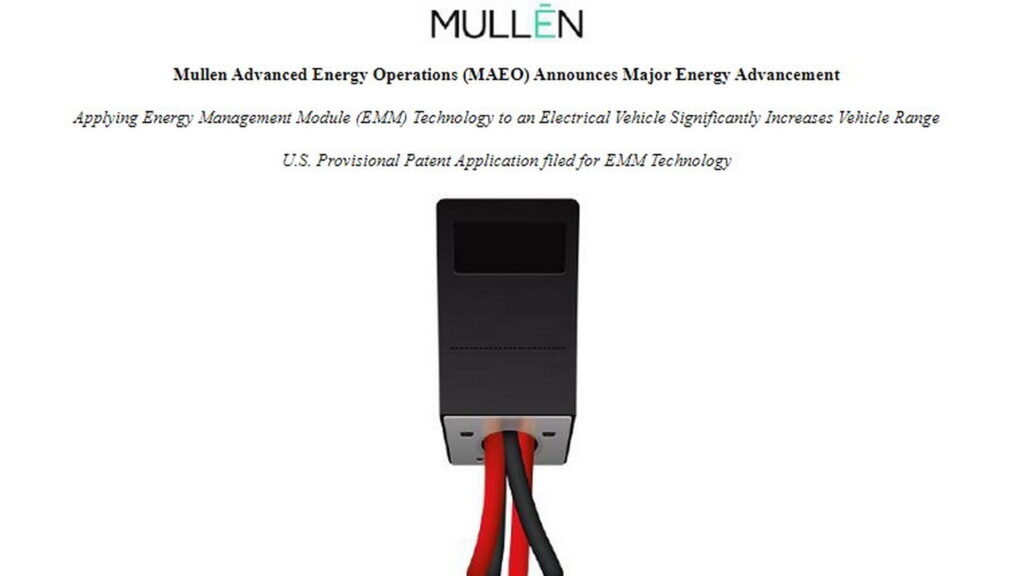Back in May of this year, the District of Columbia signed a $680,000 deal to improve its EV fleet. That improvement supposedly comes from a device called the Energy Management Module (EMM). According to its creators, it can double EV range by “rejuvenating” the battery. If that sounds too good to be true, it’s because it likely is.
The EMM is a product of Mullen, an EV-centric brand with a number of projects in that space. Mullen announced the partnership with D.C. back in May and said it was installing Lawrence Hardge as Senior VP of Technology.
Hardge claims he invented the EMM and is the one that described its operation simply by saying that it rejuvenates the battery. Mullen claims that testing has shown increases in range of up to 75 percent depending on the application. In the video below Hardge can be seen talking about his invention in vague terms.
Read: Mullen Automotive Is Rebranding China’s Electric Qiantu K50 For America
In April it seemed as if things were going ahead according to plan as Mullen announced that it was preparing to install the EMM into some D.C. vehicles. Since then, it’s been all crickets and it might be because the government realized that it was being taken for a ride and people were noticing.
WUSA9 investigated why the government was spending in excess of $16,000 per device on a car that costs about $27,000 to begin with. Neither Mullen nor Hardge provided any details about how exactly the EMM is supposed to work.
Officials from the government said that “we have been investigating new technology that would extend their life, make us work more efficiently and keep our maintenance expenses down. We learned about the EV Technologies modules when the company made a presentation during the 2022 Washington Auto Show.”
At some point, the tables began to turn because, over the last few days, D.C. has canceled the contract. WUSA9 believes that might have something to do with the fact that Hardge is a convicted felon on fraud charges. The truth though is that if he really has managed to find a way to double EV range so easily that his past likely wouldn’t matter.
One thing isn’t in question. If these units really do perform the way that Mullen says they do, then it’s got a corner on the battery market. And if they don’t work, then the company will rightly have egg on its face.








